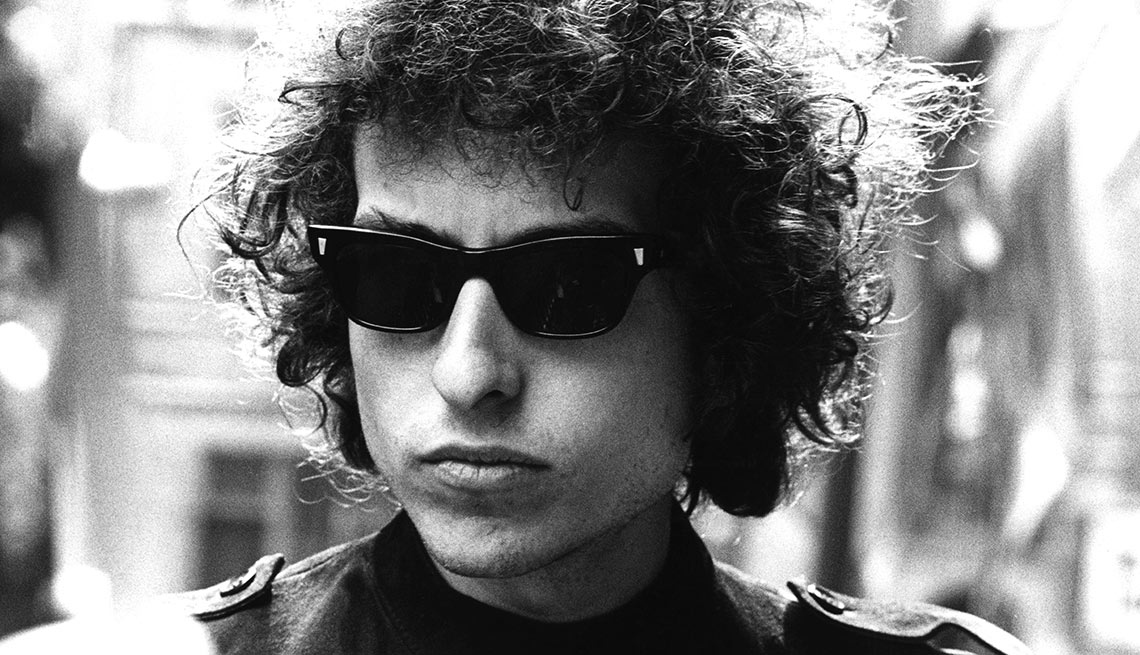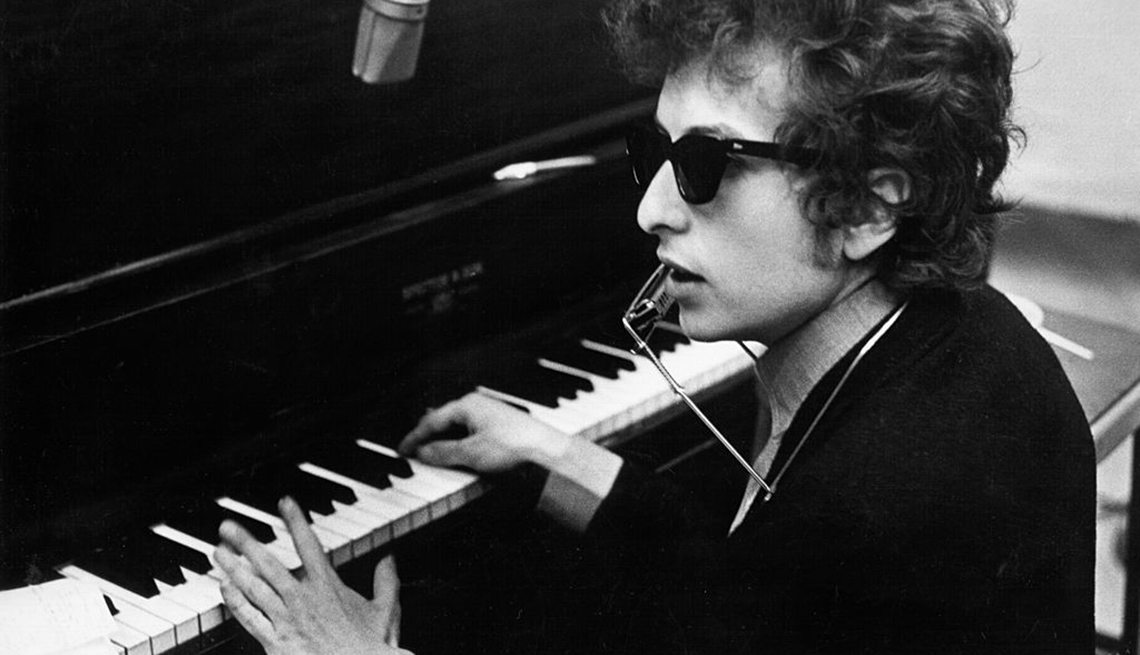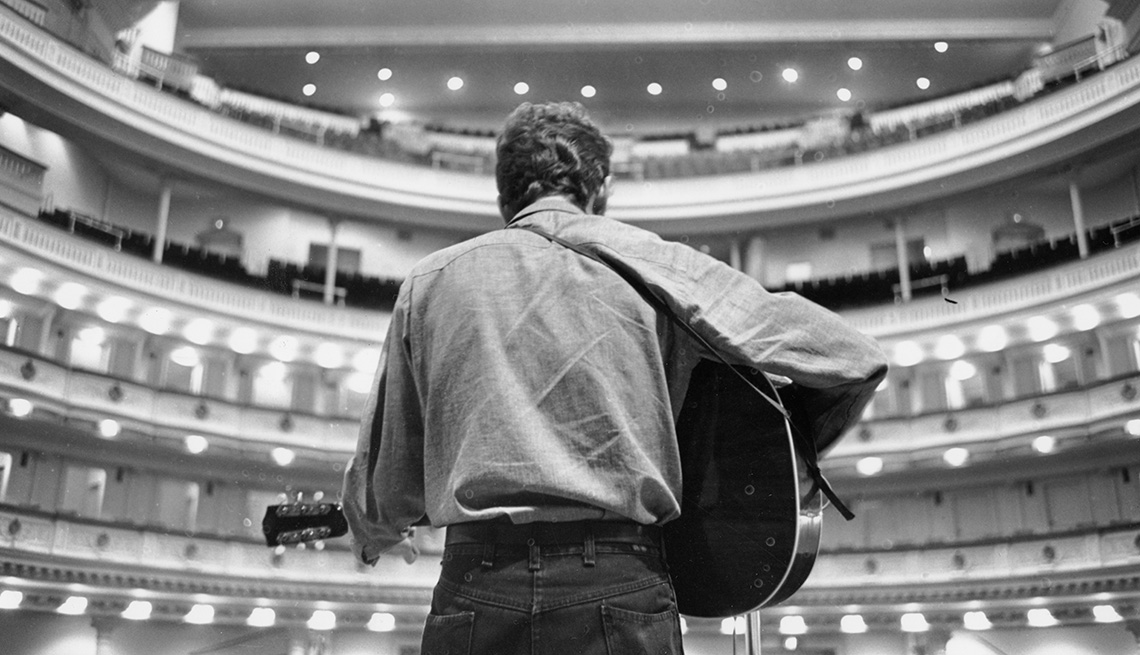"I wouldn’t say there is one type of fan.... Just all kinds of people. I can see that there’s a difference in character, and it has nothing to do with age."
Q: These songs will have a different audience than they originally had. Do you feel like a musical archaeologist?
A: No. I just like these songs and feel I can connect with them. I would hope people will connect with them the same way that I do. I have no idea what people like or don’t like. It would be presumptuous to think these songs are going to find some new audience as if they’re going to appear out of nowhere. Certainly, the people who first heard these songs, like my parents and people like that, they’re not with us anymore. I can’t generalize who these songs are going to appeal to. Besides, when I look out from the stage, I see something different than maybe other performers do.
Q: What are you seeing from the stage?
A: Definitely not a sea of conformity. People I cannot categorize easily. I wouldn’t say there is one type of fan. I see a guy dressed up in a suit and tie next to a guy in blue jeans. I see another guy in a sport coat next to another guy wearing a T-shirt and cowboy boots. I see women sometimes in evening gowns and I see punky-looking girls. Just all kinds of people. I can see that there’s a difference in character, and it has nothing to do with age. I went to an Elton John show, and it was interesting. There must have been at least three generations of people there. But they were all the same. Even the little kids. They looked just like their grandparents. It was strange. People make a fuss about how many generations follow a certain type of performer. But what does it matter if all the generations are the same? I’m content to not see a certain type of person that could be easily tracked. I don’t care about age, but the adolescent youth market, I think it goes without saying, might not have the experience it takes to understand these songs and appreciate them.
Q: So we at AARP represent people who are 50 and older. The magazine reaches 35 million readers.
A: Well, a lot of those readers are going to like this record. If it were up to me, I’d give you the records for nothing, and you give them to every [reader of your] magazine. I think a lot of your readers will identify with these songs.
Q: The songs on this album conjure a kind of romantic love that is nearly antique, because there’s no longer much resistance in romance. People date and they climb into bed. That sweet, painful pining of the ’40s and ’50s doesn’t exist anymore. Do you think these songs will fall on younger ears as corny?
A: You tell me. I mean, I don’t know why they would, but what’s the word “corny” mean exactly? I’ve heard it but don’t use it much. It’s like “tacky.” I don’t say that word either. There’s just no power in those words. These songs, take ’em or leave ’em, if nothing else, are songs of great virtue. That’s what they are. If they sound trite and corny to somebody, well so much for that. But people’s lives today are filled on so many levels with vice and the trappings of it. Ambition, greed and selfishness all have to do with vice. Sooner or later, you have to see through it or you don’t survive. We don’t see the people that vice destroys. We just see the glamour of it on a daily basis — everywhere we look, from billboard signs to movies, to newspapers, to magazines. We see the destruction of human life and the mockery of it, everywhere we look. These songs are anything but that. Romance never does go out of fashion. It’s radical. Maybe it’s out of step with the current media culture. If it is, it is.
Q: What is the best song you’ve ever written about heartbreak and loss?
A: I think “Love Sick” [from 1997’s Time Out of Mind].
Q: A fellow Minnesotan, F. Scott Fitzgerald, said famously, “There are no second acts in American life.” You are a man who has probably had four or five second acts. Poet, Voice of a Generation, troubadour, rocker and now crooner!
A: Yeah [Laughs]. I know. Right. Well, look, he said that in a day and age where he was probably speaking the truth.
Q: You once said that as a folk artist you came into the music business through the side door.
A: I did?
Q: You did. And I think I know what you
meant,
because nobody thought folk music was going to amount to anything in the music business at the time. Now here you are with this grand parade of iconic American songs. Are you finally coming in through the front door?
A: I would say that’s pretty right on. You just have to keep going to find that thing that lets you in the door, if you actually want to get in the door. Sometimes in life when that day comes and you’re given the key, you throw it away. You find that whatever you were looking for your entire life isn’t where you thought it was. Folk music came at exactly the right time in my life. It wouldn’t have happened 10 years later, and 10 years earlier I wouldn’t have known what kind of songs those were. They were just so different than popular music. But it came at the right time, so I went that way. Then folk music became relegated to the sidelines. It either became commercial or the Beatles killed it. Maybe it couldn’t have gone on anyway. But actually, in this day and age, it still is a vibrant form of music, and many people sing and play it much better than we ever did. It’s just not what you would call part of the pop realm. I had gotten in there at a time when nobody else was there or knew it even existed, so I had the whole landscape to myself. I went into songwriting. I figured I had to — I couldn’t be that hellfire rock ’n’ roller. But I could write hellfire lyrics.
When I was growing up, Billy Graham was very popular. He was the greatest preacher and evangelist of my time — that guy could save souls and did . I went to two or three of his rallies in the ’50s or ’60s. This guy was like rock ’n’ roll personified — volatile, explosive. He had the hair, the tone, the elocution — when he spoke, he brought the storm down. Clouds parted. Souls got saved, sometimes 30- or 40,000 of them. If you ever went to a Billy Graham rally back then, you were changed forever. There’s never been a preacher like him. He could fill football stadiums before anybody. He could fill Giants Stadium more than even the Giants football team. Seems like a long time ago. Long before Mick Jagger sang his first note or Bruce strapped on his first guitar — that’s some of the part of rock ’n’ roll that I retained. I had to. I saw Billy Graham in the flesh and heard him loud and clear.
More on Bob Dylan
The story of Bob Dylan in 20 songs. Check out these classic tunes.
What year did the Bard legally change his name from Robert Zimmerman to Bob Dylan? Get the answer to this and more Dylan trivia questions in our Ultimate Fan Quiz
Music critic Bill Flanagan gives us a crash course on Dylan. From his years at the Newport Folk Festival to his Medal of Honor from President Obama, it's all here in our Bob Dylan Primer



